Do you remember back when you were younger, you were so excited for the first day of school that you picked out an outfit — all brand new clothes, of course — laid it all out on your bed, and perhaps even slept beside it the entire night?
Last August, during the last few weeks of summer, that shiny childhood feeling came back to me. I was inspired to try out new clothing combinations, curating my outfits, snapping pictures of them in the mirror, and adding them to an album on my phone. I spent hours doing this — that is not an exaggeration.
I justified the time I spent by telling myself there was a practical reason for this ostensibly frivolous practice: it would be super easy to pick out something to wear on mornings when I’m running late! And if I’m feeling indecisive, I can just scroll through my outfits, à la Cher Horowitz.
I even rationalized buying a pair of four-inch heeled boots on SSENSE to my mom: “Okay, it’ll make me taller and therefore more confident, and if I feel more confident, I’ll start acting more confident, and that means I’ll put myself out there more, and so I’ll get better opportunities and grades!” Yes, I got the boots. The opportunities and grades part is still in the works.
I was onto something, though. Deep down, I knew I was putting all this effort into my outfits because I aspired to be the kind of person who puts effort into everything I do, even something as seemingly mundane as choosing the clothes I’m wearing for the day.
In his 1964 book Understanding Media: The Extensions of Man, Marshall McLuhan wrote that clothing is an extension of our skin and a means of defining ourselves socially. Some people dress extra special during the first week of class because it’s a way to establish and express their identity — not just to others but also to themselves. Who are you, and who do you want to be?
As I strolled through campus during the first week of school looking for other people’s outfits to photograph, I found that the ones I gravitated toward weren’t just unique and unconventional — although, admittedly, that was part of my criteria — they were the outfits whose models radiated self-assurance. I could tell they genuinely felt like themselves in what they were wearing. It was always so nice to see them break out into a smile once I explained why I approached them, as they realized that their efforts at self-expression weren’t going unnoticed.
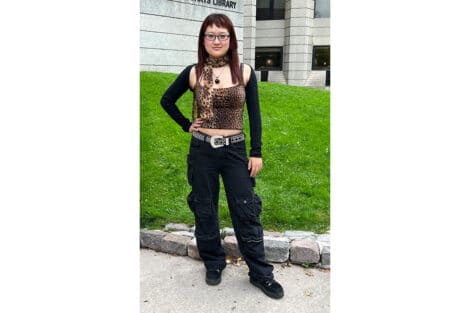
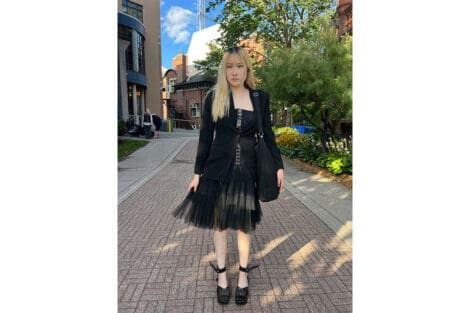
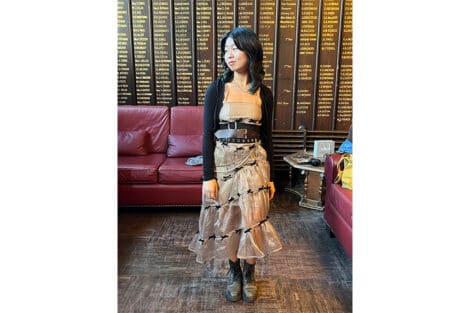

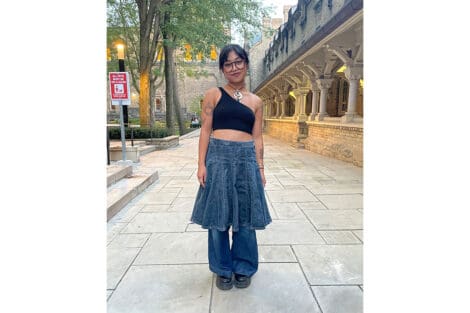
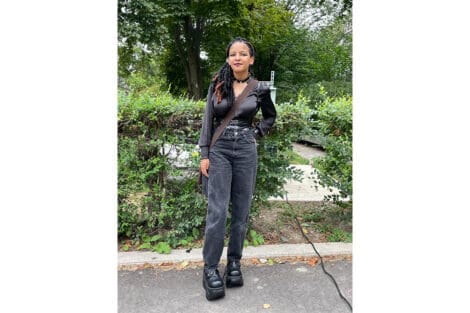
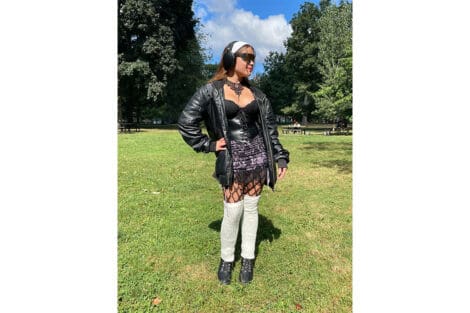
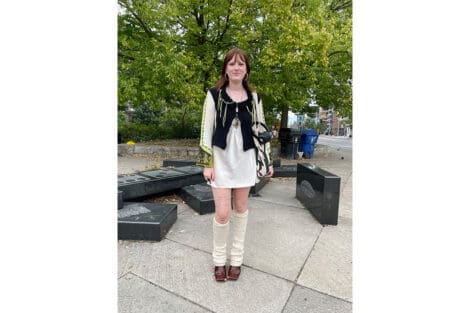
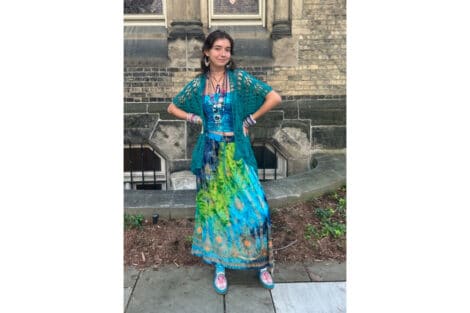
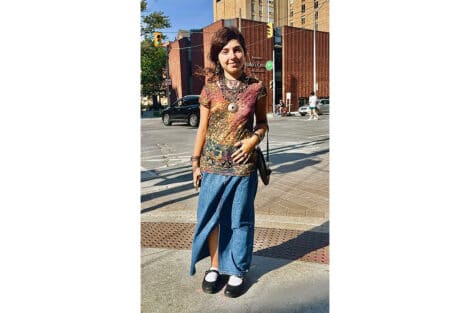
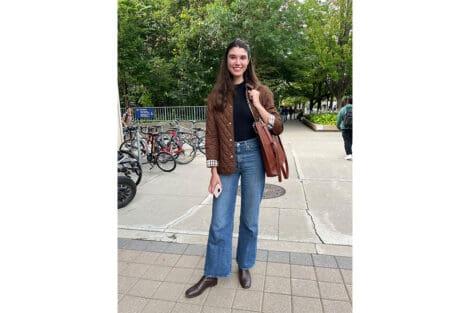
There’s a certain vulnerability that comes with being noticeable, however. I’ve seen many commenters on the U of T subreddit say that no one really cares what you wear — a hoodie and sweatpants are the unofficial U of T uniform, after all.
But I don’t think people are truly indifferent. Bold leopard print and a blingy belt; an eclectic combination of wraparound sunglasses, maximalist jewelry, a corset, fishnet tights, and leg warmers; layering a denim midi skirt over baggy jeans: these are all distinctive fashion choices that draw others’ attention. Second glances, slightly-too-long stares, and maybe even turned heads — to be authentically expressive, at its core, is to be vulnerable.
But is garnering this attention the whole point of dressing uniquely? You’ve probably heard sayings such as “School is for learning, not a fashion show,” and “You shouldn’t sacrifice comfort for style.” I think they’re reductive. In many of the outfits that caught my eye, aesthetics took precedence: funky, sky-high platform boots and spiky collars are not exactly the most comfortable clothes to study or attend class in. On the surface, this seems superficial. But prioritizing self-expression is powerful — especially through fashion, which is often the first thing others notice — and it changes how you view yourself, thus improving how you present yourself. It really is a positive feedback loop.
Personally, dressing to impress does wonders for me. Putting on a cute outfit in the morning sets the tone for my day and makes me more inclined to go out, but I’d also be lying if I said the compliments don’t go straight to my head. And although my four-inch heeled boots make me sacrifice some — okay, fine, a lot of — physical comfort and add at least five minutes to my travel time, the confident feeling I get and the way I carry myself when I wear them makes it a worthwhile trade-off.
This semester, I implore you to really think about how the clothes you wear make you feel and wear an outfit to class that reflects the kind of person you want to be. I hope you, too, can recreate the same childhood excitement that I did.

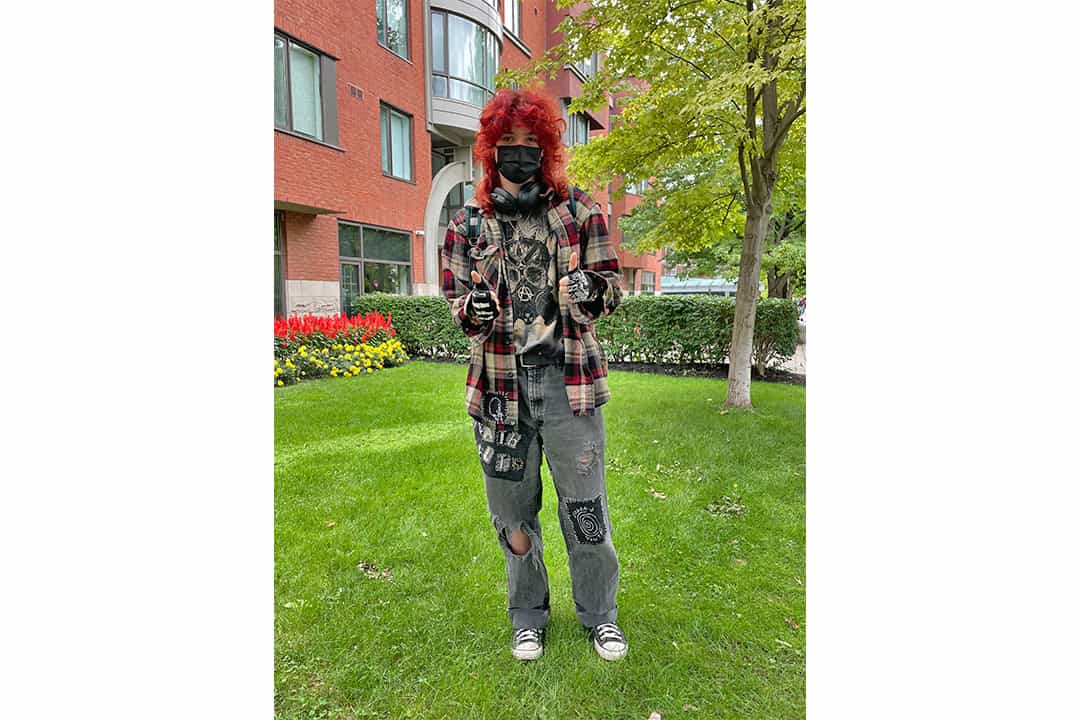

No comments to display.